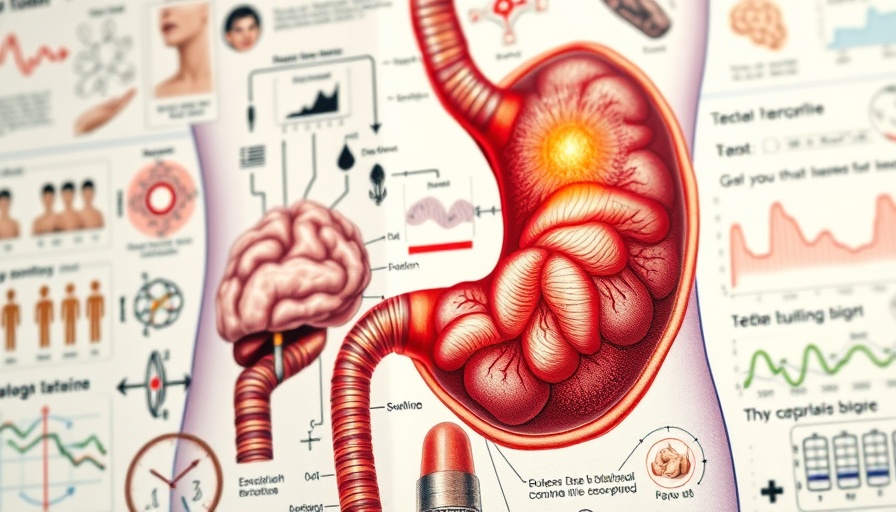
Understanding the Stomach-Brain Connection
The latest study from researchers at Aarhus University and the German Institute of Human Nutrition has unveiled a fascinating link between our stomach's electrical signals and our mental health. This relationship, commonly referred to as gastric-brain coupling, highlights how physiological states like digestion can influence emotional and psychological well-being. By exploring the intricate dance between these bodily systems, we gain valuable insight into how our gastrointestinal tract can have a significant impact on our mood, stress levels, and overall mental health.
The Mechanism Behind Emotional Well-Being
At the core of this research lies the concept of interoception—the ability to perceive our body's internal states. The stomach's rhythmic electrical activity plays a crucial role in this process, guiding brain functions related to emotion regulation. When the stomach's gastric rhythm becomes misaligned with brain activity, it can lead to increased anxiety, depression, and stress-related disorders. The findings suggest that a stable communication channel between our stomach and brain could be vital for maintaining optimal health and wellness.
Exploring the Research Methodology
The researchers employed advanced techniques such as electrogastrography (EGG) and functional magnetic resonance imaging (fMRI) to record stomach activity and brain responses. By analyzing data from 243 participants, they discovered that stronger synchronization between gastric rhythms and the brain’s frontoparietal network was often associated with poorer mental health outcomes. This groundbreaking work provides a new perspective on how internal physiological signals can serve as indicators of emotional distress.
Implications for Health and Wellness Practices
The implications of this research extend beyond the laboratory and into practical health and wellness strategies. Understanding the connection between the stomach and brain may inspire new approaches to mental health treatment, including dietary changes and the use of bodily awareness techniques. Incorporating practices such as yoga, mindfulness, or even specific nutritional supplements could foster a deeper connection between the mind and body, thus enhancing overall emotional health.
The Role of Nutrition in Mental Health
Many believe that what we eat directly impacts our mental state. A diet rich in natural healthy foods, coupled with mindful eating practices, can nurture this stomach-brain connectivity. Nutritional supplements, particularly those rich in omega-3 fatty acids, probiotics, and other natural remedies, have shown promise in alleviating mental health symptoms. This research suggests that a holistic approach to health and wellness, focusing on both nutrition and psychological support, can foster greater resilience against emotional disorders.
Future Directions for Research and Practice
As we further investigate this stomach-brain connection, future research may delve into additional physiological and emotional metrics, examining how factors like stress management techniques or lifestyle changes could enhance this pathway. Such studies can better define the vital signs that indicate mental health status and guide individuals seeking to improve their well-being.
Community Health and Wellness Initiatives
In cities like San Antonio, health and wellness centers can integrate these findings into community health programs. By educating the public about the importance of the gut-brain axis and offering workshops on nutrition, mindfulness, and alternative medicine, communities can collectively advance their understanding and approach to mental wellness. This initiative could pave the way for thriving health ecosystems, where individuals take informed steps towards achieving vitality and balance.
Conclusion: A Call to Embrace Holistic Health Strategies
In conclusion, the interdisciplinary nature of this research highlights the need to embrace a holistic perspective on health that intertwines the physical and emotional aspects of well-being. By acknowledging the powerful influences of our digestive system on mental health, we can make informed choices towards achieving optimal health and wellness in our lives. It’s time to advocate for health literacy that encompasses both mind and body for a healthier, more vibrant community.
 Add Element
Add Element  Add Row
Add Row 



Write A Comment